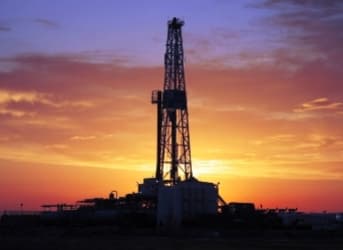China’s President Xi Jinping is on an “energy diplomacy” tour, working the post-Soviet Eurasian space, visits four of the region's five former Soviet Central Asian republics while making his way to and from the G20 summit in St. Petersburg.
It is Xi's first tour of Central Asia since he became president in March and by the looks of it, he has already notched up a number of successes.
The crown jewel in Xi’s energy accomplishments came in St. Petersburg, following up on a framework agreement signed in 2009. As late as March state-owned Gazprom and Beijing were still haggling over terms of the contract, under which Gazprom, which is facing increasing restiveness in its lucrative European market, would increasingly shift supplies to Asia, delivering up to 68 billion cubic meters of gas to China annually for 30 years. The sticking point on the agreement was the price for the gas, as Gazprom favors spot market pricing while China insisted on long term agreed prices.
The problems have now been resolved. While Xi was in St. Petersburg for the G20 summit, on 5 September Gazprom issued a press release stating that Russian and Chinese state corporations signed a number of economic agreements. Gazprom CEO Aleksei Miller and China National Petroleum Corp. Board of Directors Chairman Zhou Jiping signed the most important document of the skein of documents. Highlighting its importance, the signing ceremony was attended by Presidents Putin and Xi.
Related article: How I Learned to Stop Worrying and Love Fracking
The document clarified terms of the long-awaited multi-billion dollar gas deal, under which Gazprom and the CNPC agreed on basic conditions for the long-term deal for Gazprom to supply at least 38 bcm of natural gas annually to China.
The legally binding conditions cover a multitude of details, including the start date and volume of gas deliveries, the level of “take-or-pay” arrangements and the amount of guaranteed payments.
After the signing ceremony Miller remarked, "Both sides stressed the long-term strategic nature of our partnership. I would like to thank our Chinese colleagues for their prompt and coordinated teamwork in recent months. The fact that the signing of the basic conditions took place during the G20 Forum indicates the focus of both parties on the successful conclusion of the negotiations and the signing of the final contract by the end of 2013."
Russia holds the largest natural gas reserves in the world, with 1,680 trillion cubic feet of reserves accounting for about a quarter of the world's total proven reserves and, is the world’s largest producer and exporter of natural gas. The majority of these reserves are in Siberia, with significant reserves also located in northern Russia.
Russia gets over half of its domestic energy needs from natural gas. As the domestic market is heavily subsidized, Gazprom tries to export as much natural gas as possible to earn revenue. To put the CNPC 38 bcm contract in context, according to Gazprom’s own statistics, in 2012 it exported 138.8 bcm, down from 2011’s level of 150 bcm. The Chinese deal would make Beijing Gazprom’s leading customer, exceeding Germany (2012 imports – 33.16 bcm) and Turkey (2012 imports – 27.02 bcm). Interestingly, The Gazprom 2012 statistical chart, which lists 21 nations buying Gazprom natural gas, lacks – China.
Related article: Australia NSW to Become Natgas Boom Region?
And oh, Turkmenistan? On 3 September on his way to St. Petersburg Xi stopped off in Ashgabat and signed yet another natural-gas deal, to triple current Turkmen natural gas exports to China from their current level of 20 bcm to about 65 billion cubic meters by 2020.
On 8 September Xi concluded his visit to Kazakhstan, where he and Kazakh President Nursultan Nazarbayev “agreed that China-Kazakhstan energy cooperation is complementary and mutually beneficial, and each country treats the other as a long standing, stable and reliable energy cooperation partner.”
Xi then jetted to Uzbekistan. The final stop on Xi's Central Asia tour is Kyrgyzstan’s capital, Bishkek, where he plans to attend a September 13 meeting of the Shanghai Cooperation Organization, which many analysts ascribe to being a Eurasian counterweight to NATO.
All in all, a most successful trip.
By. John C.K. Daly of Oilprice.com


















